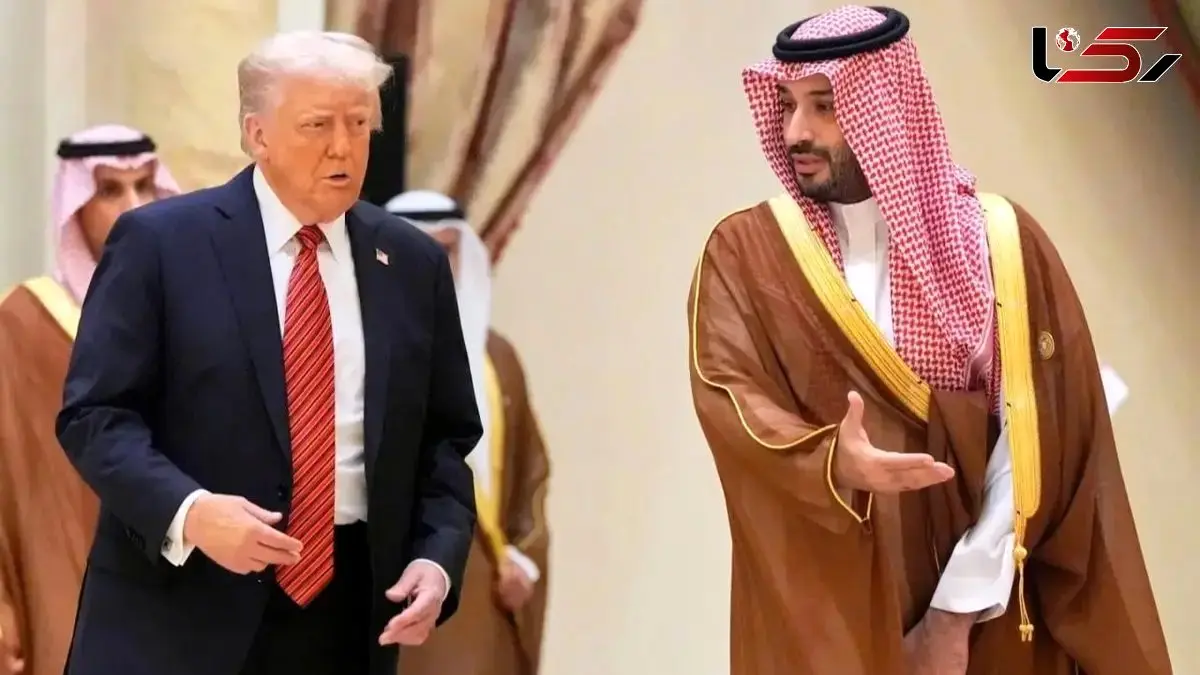Trump–Saudi Crown Prince Clash Over Israel Normalization Deal
Rokna Political Desk: Tensions rose during a meeting between former U.S. President Donald Trump and Saudi Crown Prince Mohammed bin Salman over the issue of normalizing relations with Israel. Trump urged progress toward a Saudi–Israeli agreement.

Last week’s meeting between President Trump and Crown Prince Mohammed bin Salman (MBS) turned tense when the discussion shifted to the possibility of Saudi Arabia joining the “Abraham Accords” and normalizing relations with Israel, two U.S. officials and a source familiar with the meeting told Axios.
According to Rokna, citing Axios, the report continues as follows:
Why it matters: With the end of the Gaza war, Trump had hoped that his meeting with bin Salman would lead to progress on the path toward normalization between Saudi Arabia and Israel.
Although both men publicly praised each other and displayed no disagreements, parts of the closed-door session were tense. Officials say Trump was disappointed to hear bin Salman’s opposition.
Behind the scenes: White House officials had already informed the Crown Prince that Trump expected progress on Saudi–Israeli normalization ahead of the meeting.
In the November 18 meeting, it was Trump who raised the issue and strongly pressured bin Salman to join the Abraham Accords.
The Abraham Accords, signed in 2020, normalized Israel’s relations with several other Arab states. These agreements were among Trump’s major foreign-policy achievements during his first term.
At that point, the conversation became tense. According to the officials, when Trump applied pressure, bin Salman did not back down.
Bin Salman explained to Trump that although he is interested in advancing the normalization track with Israel, he cannot do so at present because Saudi public opinion is strongly anti-Israeli after the Gaza war. He said Saudi society is currently not prepared for such a move. Three sources told this to Axios.
A source familiar with the meeting and a U.S. official said that although Trump and bin Salman remained respectful, the discussion was difficult.
The source said: “The best description is frustration and irritation. The President really wants them to join the Abraham Accords. He tried very hard to persuade him. It was a candid conversation. But bin Salman is a strong man. He stood firm.”
Bin Salman demanded that in exchange for a peace agreement with Saudi Arabia, Israel must agree to “an irreversible, credible, and time-bound path” toward the establishment of a Palestinian state. He later publicly reiterated this point.
The Israeli government opposes any pathway leading to the creation of a Palestinian state.
A U.S. official said: “Bin Salman never fully said no. The door is open for this down the road. But the issue is the two-state solution.”
What they are saying: A White House official said Trump outlined his vision for a prosperous Middle East, which includes expanding the Abraham Accords.
He said: “Now that Iran’s nuclear program has been completely destroyed and the Gaza war has ended, it is extremely important for President Trump that all Middle Eastern countries join the Abraham Accords, which will advance peace in the region.”
The Saudi Embassy did not respond to a request for comment.
Current status: In remarks to reporters last week, Trump told bin Salman that he would provide Saudi Arabia with the same advanced F-35 fighter jet model that Israel possesses, despite Israeli objections.
But one day later, Foreign Secretary Marco Rubio called Israeli Prime Minister Benjamin Netanyahu and assured him that no such commitment had been made.
U.S. and Israeli officials told Axios that Rubio informed Netanyahu Saudi Arabia would receive a lower-tier F-35 model.
According to these officials, Rubio will coordinate with Israel to ensure that the F-35 deal with Saudi Arabia does not undermine the Israel Defense Forces’ Qualitative Military Edge (QME) — a commitment explicitly required under U.S. law.
A U.S. official said: “We told the Israelis that we are committed to the QME and we will not violate it.”
Behind the scenes: In his meeting with bin Salman, Trump did not raise the lawsuit related to the al-Qaeda attacks on September 11 — a lawsuit filed by families of the 9/11 victims against Saudi Arabia.
A judge recently allowed the case to proceed, stating that there is extensive evidence of Saudi involvement in the attack that killed 2,977 people.
Send Comments